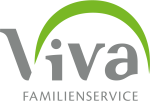Care at home: what support is available?
 When a person becomes a nursing case and wants to be cared for at home, in the vast majority of cases this affects the entire family. We have compiled information for those affected and their relatives that provides an overview of the various options for support with care at home.
When a person becomes a nursing case and wants to be cared for at home, in the vast majority of cases this affects the entire family. We have compiled information for those affected and their relatives that provides an overview of the various options for support with care at home.
Financial support:
Care not only costs time, but also money. There are various benefits that can be claimed by caregiving relatives and by those affected. And the family caregivers also have to take care of their social security:
- You must apply for a care degree in order to be entitled to the benefits of long-term care insurance. Insured persons with care degree 2 or higher are entitled to care allowance in the case of home care by relatives or friends or to care benefits in kind in the case of professional care by an outpatient care service, as well as to subsidies for day and night care, short-term care, preventive care and full inpatient care.
- Subsidies for home adaptation: The long-term care insurance fund can pay up to 4,000 euros as a subsidy for adaptation measures for people in need of care, which are intended to enable or facilitate home care in the home or to restore as independent a lifestyle as possible for the person in need of care.
- Social security for the caregiver: The care insurance pays pension insurance contributions for caregivers who are not gainfully employed (prerequisite: care degree 2, minimum ten hours/week of care work and no more than 30 hours/week of gainful employment). In addition, the caregiver is covered by non-contributory statutory accident insurance and the care insurance pays unemployment insurance contributions for the entire duration of the caregiving activity.
Support for care work:
Home care often depends on just one person. Particularly in the case of prolonged care, physical and psychological overload or even illness of the caregiver can occur. To prevent this from happening, there are various options that can be used:
- Outpatient care service: supports people in need of care and their relatives with care at home.
- 24-hour care: Home and care workers who live in the household of the person in need of care and help with everyday tasks.
- Day care: The hourly care during the day in a care facility. The night is then spent back at home – one day a week or several days a week.
Preventive care: A vacation or sickness replacement for up to six weeks a year. Long-term care insurance covers the proven costs of necessary substitute care up to 1,612 euros, from care level 2. - Relief amount: People in need of care – from care level 1 – in home care are entitled to a relief amount of up to 125 euros per month. The amount must be used for a specific purpose. To receive the relief amount, the relevant invoices must be submitted to the care insurance fund.
Aids:
Care aids are devices and materials that are necessary for home care, facilitate it or contribute to enabling the person in need of care to lead a more independent life.
Technical aids are used to facilitate home care and the everyday life of the person concerned and to alleviate complaints. These include, among others, the nursing bed, positioning aids, the rollator… The aids must be prescribed by a doctor and approved by the health or nursing care insurance fund. The person concerned must make co-payments for these.
Nursing aids are consumable products, such as disposable gloves or bed pads. Reimbursement is made via the care insurance of the person in need of care. No prescription is required for this; an application for reimbursement must be submitted to the long-term care insurance fund. There is a monthly budget of 40 euros for care aids for each person in need of care.
Digital care applications (DiPA) are apps that are designed to help strengthen the independence and self-determination of people in need of care and to relieve the burden on family caregivers. If the long-term care insurance company approves the provision of a DiPA, the person in need of care is entitled to reimbursement of expenses for DiPAs up to a total of 50 euros per month.
We at Viva FamillienService will be happy to consult you!













